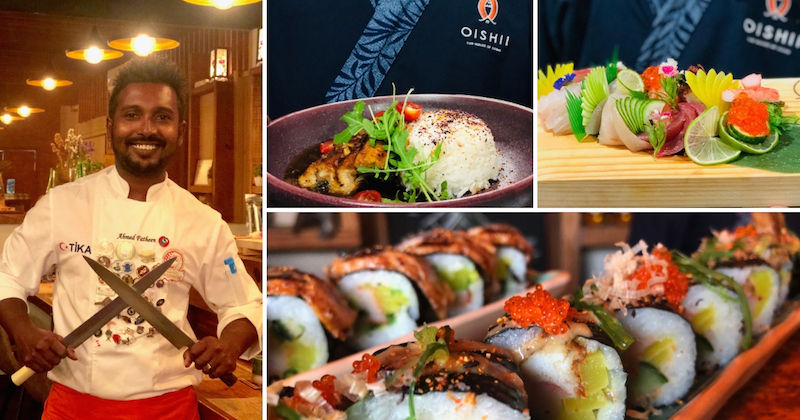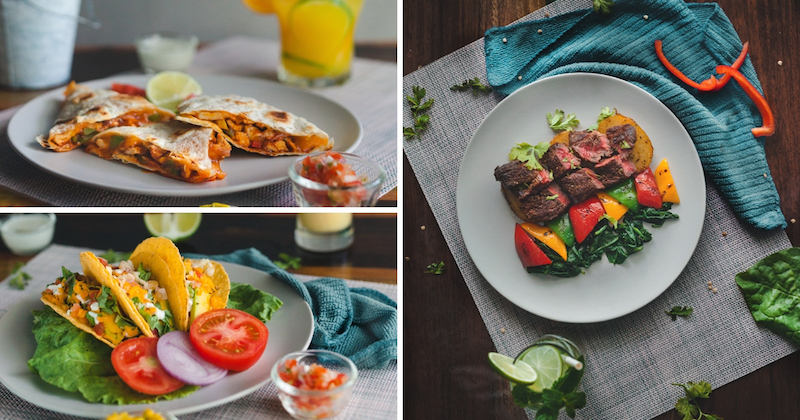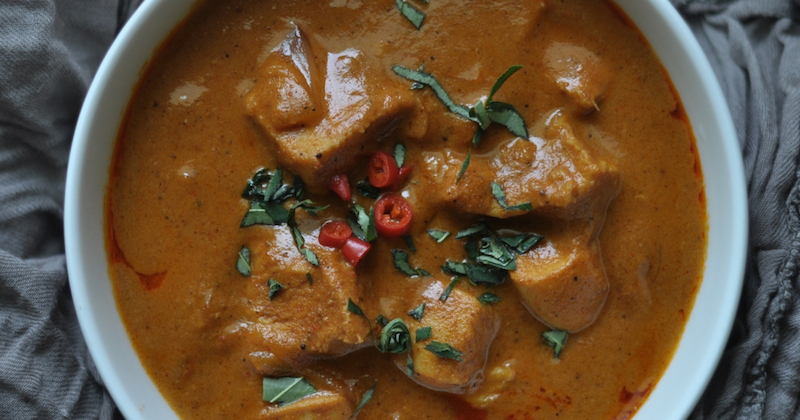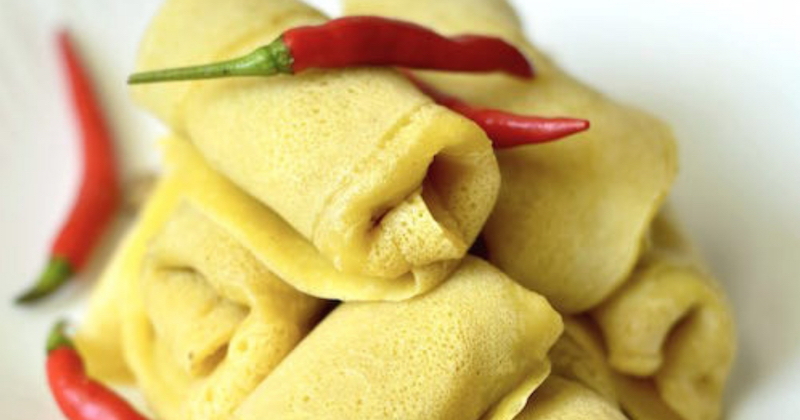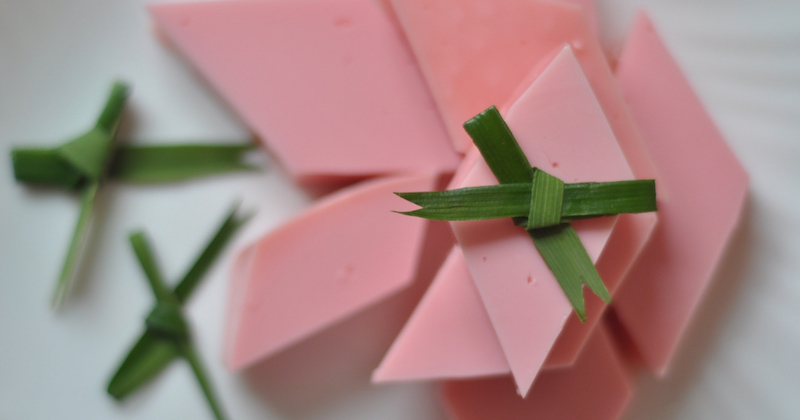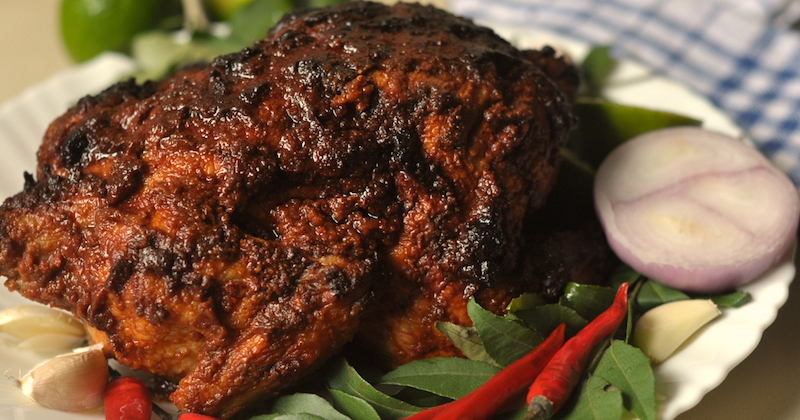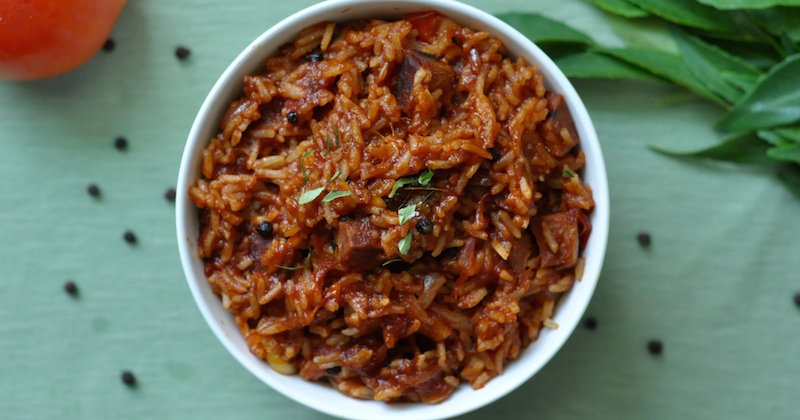Maldivian food – the need to know dishes
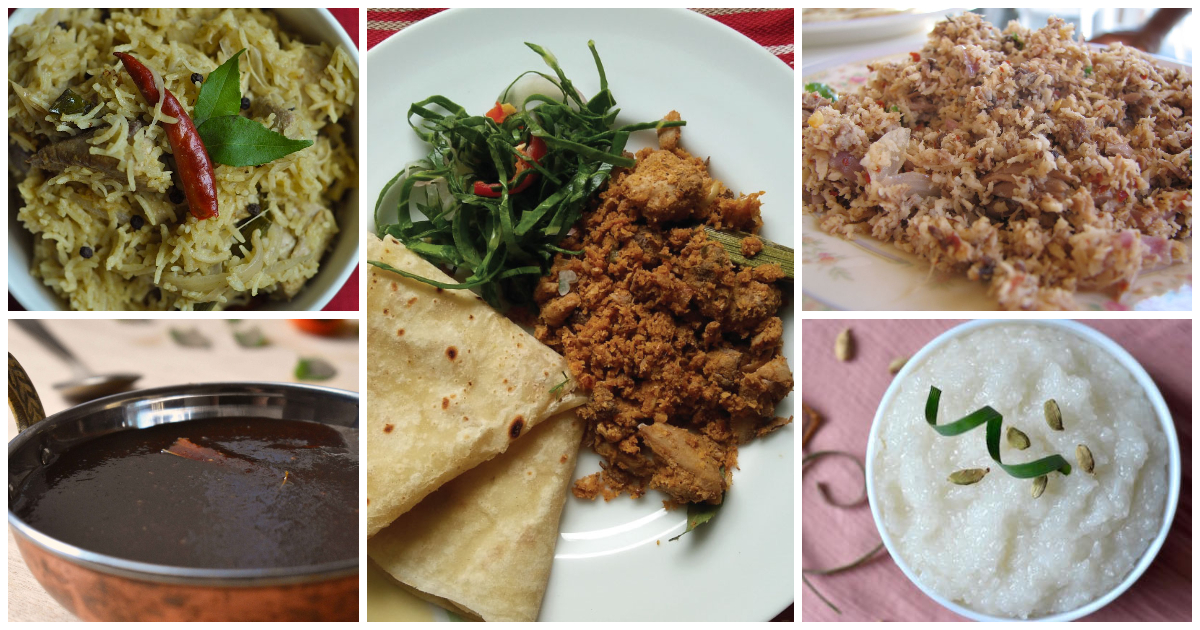
By Iyath Adam
The Maldives is famous for its white sandy beaches and turquoise seas, and tourists flock here year round to spend leisurely time in the sun. But unfortunately, our local cuisine is not that well-known among visitors.
Following tourism, fishing is Maldives’s second largest industry, and with 99 percent of the country being sea, it’s no surprise that most of our food is made with fish. In addition to fish, we also prepare a variety of foods using the local produce found on our islands.
Here in the Maldives, we typically eat our food as one course each for breakfast, lunch, and dinner. Maldivian flatbread roshi along with a tuna and coconut sambal called mashuni is the typical Maldivian breakfast, while plain rice or roshi with a side dish is usually served for lunch and dinner.
Desserts may be served with lunch and dinner but are more commonplace during special occasions such as Eid and other traditional holidays.
For evening tea, we have our own short eats called hedhikaa, often served with strong black tea (kalhusai) or milk tea (kirusai). For more information on the tradition, check out our hedhikaa guide.
Below, we’ve compiled a list of some must try dishes from the Maldivian cuisine. Come with us on this culinary tour of Maldives.
Garudhiya
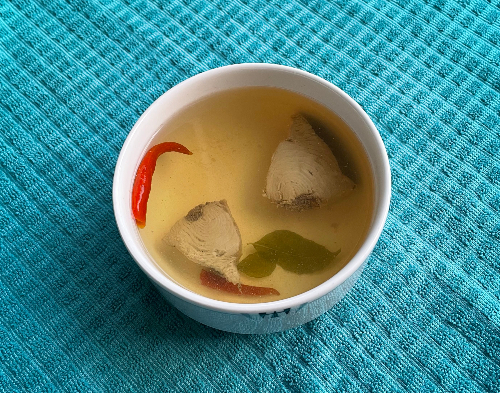
The quintessentially Maldivian dish, garudhiya or fish broth is made by simply boiling fish in salted water. The fish is boiled until it is cooked and while it cooks, the scum or garu that floats on the top of the broth gets carefully scooped off.
The result is a deliciously savoury broth that is typically eaten for lunch or dinner with white rice, thelli faiy (fried moringa leaves) and thelli mas (fried fish), and other condiments.
Garudhiya is also sometimes made with fish heads which lends the broth a richer flavour. Other add-ons to garudhiya include whole dried chillies, curry leaves or even bilimbi or bilimagu as it’s called in Dhivehi.
Rihaakuru
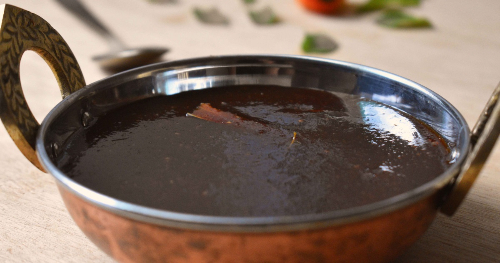
The cornerstone of Maldivian cuisine is undoubtedly rihaakuru – the Maldivian fish paste. Rihaakuru is made by cooking fresh tuna in salted water – usually over days – until the water evaporates and a salty concentrated paste emerges.
The paste can be light to deep brown or even black in colour, and is enjoyed by locals for breakfast, lunch, and dinner. In fact, you’d be hard pressed to find a Maldivian who doesn’t like rihaakuru! For breakfast, it’s usually eaten with roshi (Maldivian flatbread) and for lunch and dinner with white rice.
For more on rihaakuru, check out our blog post here.
Rihaakuru Dhiya
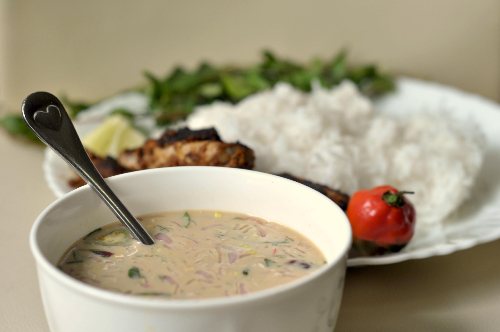
Rihaakuru dhiya is made by mixing rihaakuru with coconut milk, sliced onions, chillies, curry leaves, and bilimbi or green mangoes. Rihaakuru dhiya is usually made for special lunches – such as when guests are visiting – and is just superb with banbukeyo baiy (breadfruit rice).
Another version of rihaakuru dhiya is rihaakuru garudhiya which is a cooked form of rihaakuru dhiya that omits the coconut milk.
Mashuni
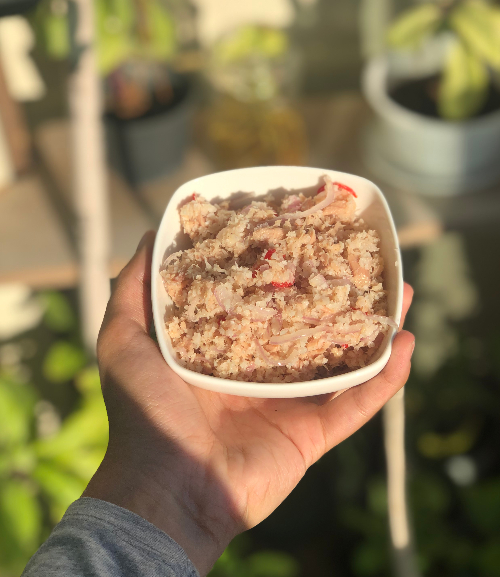
Mashuni is the ultimate Maldivian breakfast dish. Made by mixing boiled, canned or smoked tuna with shredded coconut, sliced onions, lime and chillies, mashuni is best enjoyed with roshi and a hot cup of strong black tea.
Mashuni can be made with many add-ons – there is fathu mashuni which is made with kopee faiy (perennial leaves); barabo mashuni made by mixing boiled pumpkin into the tuna mixture; and bashi mashuni, made by mixing in steamed eggplant. For a spicy kick, you can add chilli flakes too!
Kulhimas
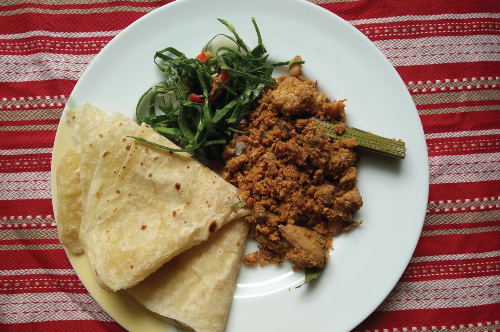
Kulhimas literally means spicy fish and is another traditional breakfast favourite for Maldivians. Kulhimas is a dry curry-type dish made with cubed tuna, chilli powder and coconut milk. Some recipes also add tomato paste for a brighter colour and different flavour profile, although our recipe doesn’t.
Kulhimas is also typically eaten with roshi and is still a daily breakfast staple in many households.
Kandu Kukulhu
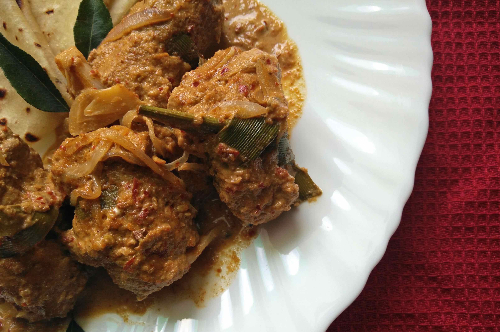
Kandu Kukulhu or kandu kukulhu riha is a special tuna curry made for special occasions. The name translates as chicken of the sea!
The tuna is cut into chunks, stuffed with the specially made kandu kukulhu curry paste, and tied with strips of pandan. Then it’s cooked in a curry sauce made with more of that special curry paste and coconut milk.
Masbaiy
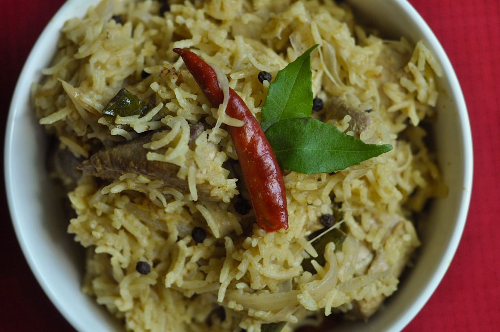
Masbaiy is a unique Maldivian rice recipe that can be made with either valhomas (smoked fish) or fresh tuna. Masbaiy has a pleasant yellow colour – due to the inclusion of turmeric– and has a delicious savouriness to it.
The uncooked rice is first lightly caramelised along with the fish and onion and spice mixture before being boiled. By doing this, the rice is infused with the aromatics which in turn lends a really deep flavour.
Masbaiy is best enjoyed with thelli rihaakuru – rihaakuru fried with onions, garlic, chillies, and scotch bonnet.
Baiypen
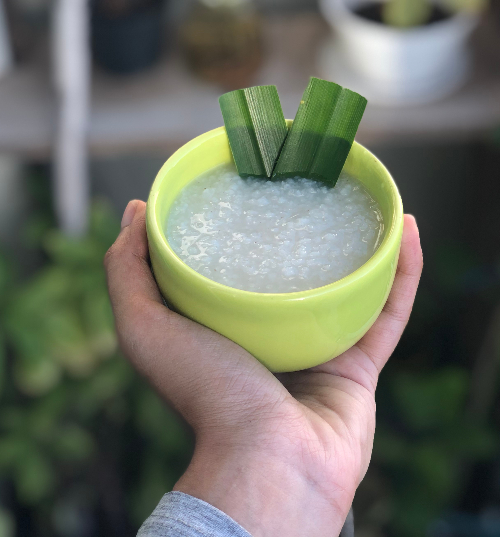
Baiypen or rice porridge is a staple during Ramadan for both breaking the fast and for suhoor (meal eaten before dawn). It has a neutral flavour and is eaten with other add-ons like gabulhi satani – a savoury mixture of lime, young coconut and valhomas – and maskurolhi – a ground flavourful mixture of hardened valhomas.
You can also make a savoury version of it – kulhi baiypen with different spices and grated coconut which is perfect for a cold day!
Bondibaiy
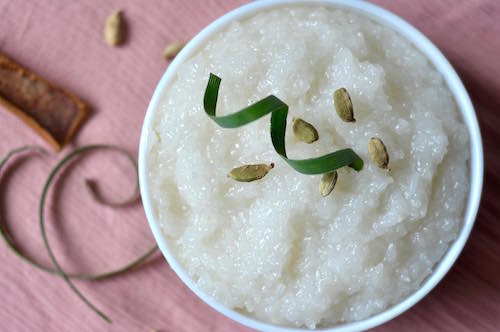
Bondibaiy is a type of rice pudding made in the Maldives. Classic bondibaiy is made with white rice, coconut milk and sugar – cooked together until the rice soaks up the milk and thickens. This version of bondibaiy is typically eaten with kulhimas on special occasions like Eid or naming of a new-born.
Bondibaiy can be made with different staples such as breadfruit (banbukeyo bondibaiy) and lentils (mugu bondibaiy). Check out some of our favourite bondibaiy recipes here.
These are some common dishes that can be found in every Maldivian household throughout the week. But there is so much more to explore! For more Maldivian dishes, recipes, and food stories, check out our Maldivian recipes and Maldivian food culture sections.
About Lonumedhu
Lonumedhu is about eating great food right here in the Maldives.
Our easy to follow recipes use locally available ingredients.
In our blog you will find food news, interviews with chefs and cooks, useful information about eating out and other foodie reads.
Contacts
© Lonumedhu.com 2017-2026. All rights reserved. No part of this website may be reproduced without the written permission of the publisher.
Advertisers
Lonumedhu.com has partnered with Qualia Pvt Ltd, a publishing & marketing agency, for its desktop and mobile advertising.
Advertising enquiries should be directed to (960) 987 4396 or marketing.sales@lonumedhu.com.

